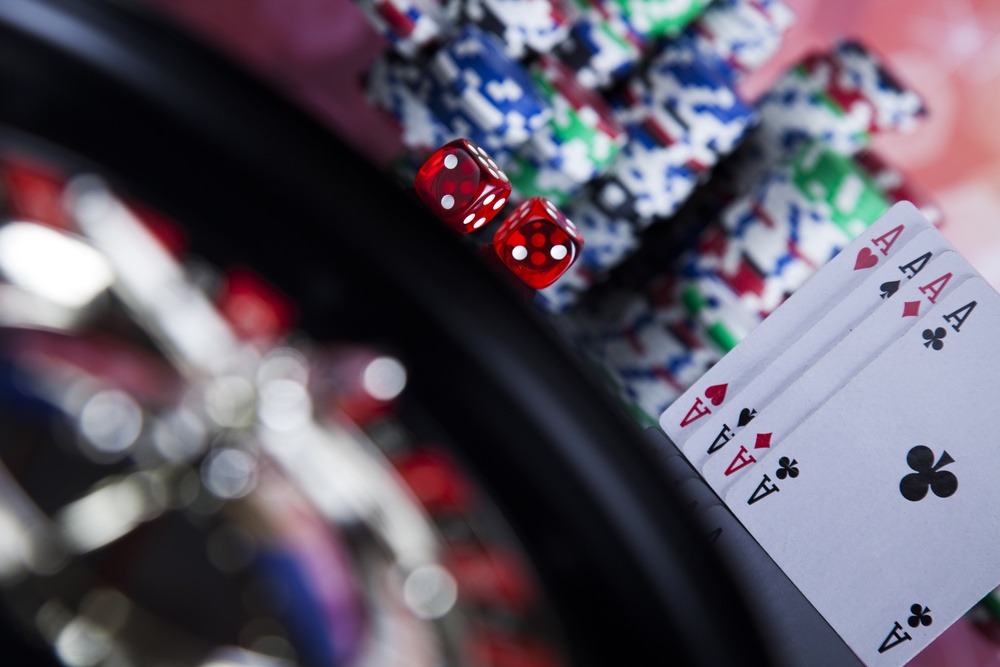Casinos Knowingly Breed Gambling Addiction To Make A Profit Part 2
 Contributed by
Suresh Joseph
August 3, 2016
Contributed by
Suresh Joseph
August 3, 2016


In Part 1 of this article, we looked at the role of casinos in breeding gambling addictions, and the devastation this causes to addicts, their families, and the community.
Policy Changes Needed To Help Prevent Gambling Addiction
Several measures can and should be taken to improve casino policies in order to help prevent gambling addiction from developing.
1. Restrict Ability To Gamble On Credit
One problem is the ease of access to cash and credit within casinos. Where cheque cashing is allowed, casinos use a third party system that guarantees the casino gets paid even when gamblers write bad cheques. This makes it too easy for people to break the law by writing and cashing bad cheques, while they chase a slot machine they are sure will give them their money back eventually. Slot machines are, of course, designed to make the gambler think they are going to win, but ultimately always go in favour of the house.
Where cheque cashing is not allowed and casinos cannot provide credit, they often have ATM machines that will allow gamblers to take out cash advances on credit cards. In Australia, where more money is lost to gambling per individual than any other country, local gambling institutions freely offer $1000 credit to anyone who will accept it – as long as it is paid back within a week.
Of course, any time people start gambling on credit, problems are sure to arise. Legislation should take away gamblers’ ability to use any form of credit for gambling within casinos and, at the very least, make it illegal to offer credit specifically for the use of gambling.
2. Send Out Monthly Comp-Card Invoices
Casinos often offer comp-cards that track a gambler’s every move in the casino and offer incentives and rewards to regular gamblers. ‘Comp’ standing for ‘complimentary’, and these cards track the amount of money that you play at the casino. Each amount you play, you rack up points. For example, after 90 minutes of playing slots, you may be rewarded with a free t-shirt. But in that 90 minutes, you also would have had to spend close to 100 dollars on the slots – pretty expensive t-shirt, no?!
One proposed provision to combat gambling addiction would be to require casinos to send out monthly comp-card invoices to their patrons, so gamblers and their families can see just how much time and money was lost on gambling, and intervene before serious problems develop.
3. Limit Hours Of Operation
Many casinos are open 24 hours a day. A visit to a casino in the early morning hours will quickly reveal the dark side of gambling addiction. A casino’s hours of operation can and should be restricted. If the place is closing, it will force gamblers to take a break – and hopefully once they are outside in the fresh air, they can reason with themselves and realise it was probably for the best that they have some time to give their wallets (and minds) a rest.
4. Post And Distribute Facts About Gambling Risks
One Massachusetts casino offers brochures that give people information about the risks of gambling and the reality of their odds of winning — but the brochures are placed off the beaten track within the casino. Posting factual information about the realities of gambling addiction, how it develops, and a person’s real odds of winning should be required and readily accessible within casinos.
5. Place Limits On Slot Machines
Slot machines are the most addictive and popular of gambling methods. In Australia, people can lose up to AUD1500 in an hour on the pokies, and some legislators believe slot machines should limit how much money people can lose before they are kicked off the machine. Some suggest that if a gambler loses more than $150 in one hour, they cannot get back on a machine for 24 hours. This would give them some time to think about whether or not they should continue betting.
The bottomline is that gambling is an addictive form of entertainment and gambling addiction ruins lives just like alcoholism or drug dependence. Casinos unfortunately profit from people’s compulsive gambling and currently do little to address or acknowledge the problem.
At The Cabin addiction treatment centre we provide treatment for all substance and process addictions, including gambling. Contact us today if you are struggling with compulsive gambling and need help.
Visit the The Cabin Singapore page to find out more about Suresh’s work.











Sorry, the comment form is closed at this time.